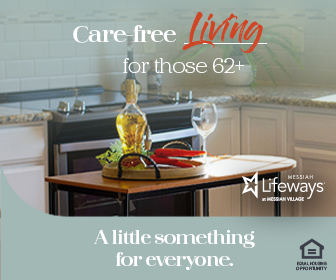One of the biggest challenges that caregivers of an aging parent or loved one faces is choosing the right place to move them to when living at home is no longer feasible, practical or safe. Many caregivers struggle with conceding to allow someone else to take care of mom. However, as hard as that is sometimes, it’s often the best remedy for their sake and yours. And despite any promises made and your best efforts as a caregiver, finding the right personal care home or assisted living can be a better alternative. Once you’ve both come to grips that it’s time for a change, you’re ready for the next challenge, which is finding a place they can call home and you can feel good about.
For those needing assistance or care in a facility or community, Pennsylvania has three main options: personal care homes, assisted living residences, and nursing care. Each has standard criteria and regulations they must follow in order to lawfully and effectively care for someone. You can get detail online at the Department of Public Welfare (DPW) website for personal care, the Department of Aging (Office of Long-Term Living) website for assisted living and the Department of Health (DOH) website for nursing care. But which is the right one for mom? This is not always a black and white answer. Despite the government standards and regulation different facilities have additional varying criteria. An assessment by the facility itself is the most optimal way to determine the level of care needed. A recommendation by a physician or a geriatric case manager is also a valuable part of the process.
Though many people still generalize the care that precedes nursing care to be assisted living, most of the options in Pennsylvania still remain licensed as personal care homes – not assisted living residences. If you want more detail about the difference between personal care and assisted living, please refer back to my previous blog. Personal care homes come in a variety of shapes and sizes, but all are licensed and governed by the PA Department of Public Welfare and provide the same basic services. This includes providing three meals a day, physical assistance for activities of daily living like bathing or dressing, medication monitoring, laundry and recreational activities. Additionally many providers augment those services by adding options like transportation, outpatient therapy and amenities like a beauty salon, fitness center or a chapel.
We covered some of the basics on personal care, now let’s start the search. There a number of ways to evaluate your options for personal care. Learning about a facility by word of mouth has its pros and cons. On one hand it’s helpful to hear from someone who actually had a parent or spouse in the home you’re considering, but you can’t always take their word as gospel. Everyone’s expectations and experiences can be quite different. Asking a healthcare provider like a social worker or therapist can sometimes be helpful. But, if you want to start from scratch, I suggest you do a broad county-by-county search on the DPW website. It’s the most comprehensive and up-to-date list of personal care homes that also includes their contact information, capacity, whether it’s for-profit or non-profit and most importantly a link to the homes most recent inspection survey.
After narrowing your list based on recommendations, survey results and location, you can take it step further by calling for availability, admission criteria such as whether they have a secure dementia care and asking about financial guidelines. It’s frustrating if you get ahead of yourself, take tours and find out afterward they don’t have what you’re looking for or it’s out of your price range. But once you do narrow your list, definitely call and schedule a visit. A few other suggestions are scheduling a lunch visit or to have your parent join in on an activity. Also get a copy of the menu, activity calendar, and newsletters to see what is happening on a daily basis. Another great idea is having mom come stay for a respite. Although it may take longer than a short stay, many who come for a week or two respite get a good flavor of what living there would be like on a long-term basis.
You should also ask whether they are not-for-profit, because more often than not, if they are a non-profit, benevolent or charitable care is available to allow residents that spend down to stay in the facility for as long as they need it. Lastly, ask what the plan or options are if your spouse or parent needs more care than what the personal care home can provide? Do they have nursing care on campus or have an agreement with another provider, because a majority of the time there will be a need for more complex care? If they don’t offer direct access to nursing care, then you have to start the search process all over for a nursing home.
Finally, delve into this process sooner rather than later. Even though it’s not a fun topic, hindsight is 20/20. When you start searching for a personal care home last minute, you or your loved one may regret that hasty decision. This is a big decision and should not be taken lightly or done haphazardly. You want to choose a place that meets the needs of your loved one and does it well and where they feel most comfortable and at home.
For more tips and information about choosing the right personal care home for a loved one, please contact the Coach at 717.591.7225 or email coach@messiahlifeways.org.
This is Part 1 of 3 of a blog series. Please stay tuned as we cover how to choose the right Assisted Living (Part 2) and Nursing Home (Part 3).
by: Matthew Gallardo, Messiah Lifeways Coach





